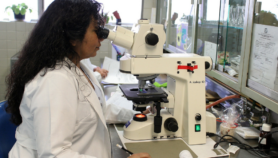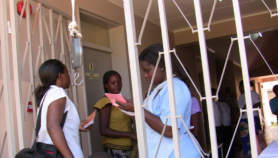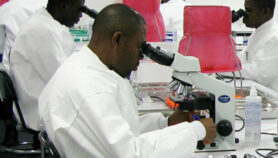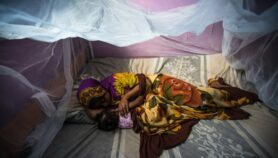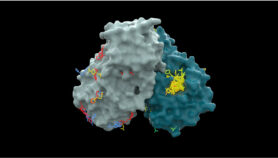By: Gilbert Nakweya
Send to a friend
The details you provide on this page will not be used to send unsolicited email, and will not be sold to a 3rd party. See privacy policy.
[NAIROBI] The Biosciences eastern and central Africa – International Livestock Research Institute (BecA-ILRI) Hub, based in Kenya, has been awarded a grant to expand its research on genetic resistance to cassava brown streak disease and cassava mosaic disease, which have devastated crops across the region.
The US$100,000 grant, awarded by the Illumina Agricultural Greater Good Initiative, a developer of life sciences tools based in San Diego, United States, was given in the form of sequencing reagents to aid diagnostic research. It will also include a year of training and support for BecA-ILRI staff in data gathering and interpretation.
SPEED READ
- The BecA-ILRI Hub has been given US$100,000 worth of sequencing reagents to aid cassava disease research
- Scientists at the hub will also receive training
- The grant will be used to explore other emerging cassava diseases
The two targeted diseases have caused large crop loss and limited production of cassava, an important drought-tolerant staple crop, across Sub-Saharan Africa.
Potential new crops viruses will also be investigated under the grant, says Appolinaire Djikeng, the interim director of BecA-ILRI.
"It is important to note that there are other emerging cassava diseases caused by viruses other than those known to cause cassava mosaic disease and cassava brown streak disease," Djikeng tells SciDev.Net.
Djikeng says that a lot of research has been done on developing disease-resistant cassava but the BecA-ILRI Hub is focusing on diagnosing crop diseases which will in turn potentially contribute to more successful breeding of resistant varieties.
The reagents will also be used toaccelerate research in identifying virus-resistant genes in cassava through gene expression studies and the analysis of sequence variation.
Skills gained through the year of training are hoped to be transferred from the hub to national African agricultural institutions and universities through the BecA-ILRI Hub capacity-building program.
Willis Kosura Oluoch, professor of agricultural economics at Kenya’s University of Nairobi, tells SciDev.Net the grants are timely and will give the grantees the confidence to continue working on the cassava crop, which he says has huge potential to lift millions out of poverty in Eastern Africa.
He adds that cassava has been neglected in the past and yet there are arid and semi-arid areas where they could thrive, if scientific innovations are promoted. This can relieve the huge population from poverty and hunger as well as dependence on food aid, he says.
The grant was awarded at the 21st International Plant and Animal Genome conference in San Diego, last month (15 January).
This article has been produced by SciDev.Net’s Sub-Saharan Africa desk.







